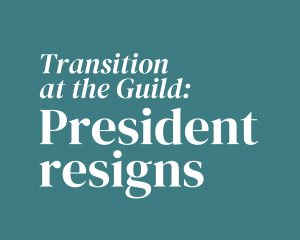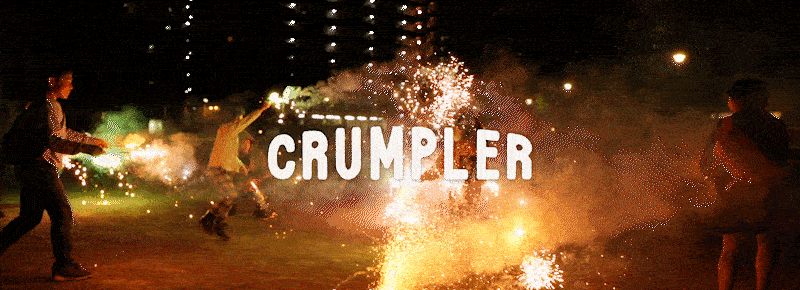
Will Smith, Roman Polanski, and the moral corrosion that keeps Hollywood alive
Content Warning: This article contains references to sexual assault and misconduct.
*Updated July 18th, 2022.
For all its circumstance and glamour, Hollywood is one of the most insular communities in the world. Even the synecdoche “Hollywood” is derived from a singular, elite neighbourhood in one of the most expensive cities in the world. A 20-minute drive downtown and you find Skid Row, the permanent home of nearly 10,000 homeless people.
It’s not surprising then that Hollywood celebrities often find themselves outside the realm of permissible behaviour to those outside their bubble. But, even in the changing landscape of film distribution, various paths to the top – and different definitions of what “the top” is – haven’t effectively challenged the cultural dominance of Hollywood in the film industry, a dominance personified by the Academy of Motion Picture Arts and Sciences.
But their stranglehold has weakened. All-time low rates of viewership of the Oscars have plagued the Academy in recent years, and cheesy jokes, presenters who are decades out of popularity, and general tone-deafness still tear at the credibility of the Oscars. Yet, Hollywood personalities still buy in, redeeming the credibility of the 1% and further Hollywood from the real world.
So, it is surprising that the Academy banned Will Smith after his now-infamous slap of Chris Rock. Not because I see his actions as acceptable, but because I thought the Academy would. The celebrity elite being held accountable for flagrant abuse is devastatingly new, younger than most Gen-Zs.
***
Not enough is written about the case of Roman Polanski, the Polish-French Director who survived the Holocaust and went on to win an Oscar, two Golden Globes, two BAFTAs, the Palme d’Or, and a Ceasar.
Rosemary’s Baby (1968), Macbeth (1971), and Chinatown (1974) were the films that secured Polanski’s cult status as one of the greatest living filmmakers. But his wreath of bourgeoise-Hollywood credibility isn’t the part of Polanski’s life that is underreported.
In 1977, Polanski was arrested for the drugging, rape, and sodomy of a thirteen-year-old girl entrusted in his care. So dire were the circumstances, even a 1970s court seemed likely to give Polanski serious time, resulting in a plea deal that he believed would secure his freedom. He pleaded guilty to the lesser charge of unlawful sex with a minor and was convicted, but Polanski fled the United States upon learning that the judge presiding would not accept his plea deal. In the years that followed, multiple other women came forward alleging assault, often as children, at the hands of Polanski. The original complainant eventually secured a civil settlement in the 1990s.
This should have been the end of Polanski, doomed only to wander around Poland, France, and Switzerland as he avoids U.S extradition for the remainder of his life. But Polanski had already bought in, and Hollywood had bought into him, too.
Three of his Oscar nominations (including his sole win), three Golden Globe nominations (including a win), a BAFTA Award, a Palme d’Or, and nine Cesar awards (from an incredible 12 nominations) have all come to Polanski in the years since his conviction. Far from refusing to work with a convicted sex offender, the community rallied behind Polanski and enabled him to continue working and abusing in their industry. Eight women have accused Polanski of sexual misconduct in the years after his extradition.
The Polanski Petition
At one stage, it seemed likely that Polanski would be extradited to the United States to answer for his crimes, both convicted and alleged. In 2009 Polanski, then aged 76, was placed under house arrest in a Swiss chalet to await extradition to the United States. The director had travelled to Switzerland to accept a lifetime achievement award at the Zurich Film Festival.
Again, Polanski’s community rallied around him. Filmmakers, actors, and producers worldwide signed a petition urging his immediate release, reading as follows;
‘Filmmakers in France, in Europe, in the United States and around the world are dismayed by [his arrest]. It seems inadmissible to them that an international cultural event, paying homage to one of the greatest contemporary filmmakers, is used by police to apprehend him.
‘His arrest follows an American arrest warrant dating from 1978 against the filmmaker, in a case of morals.
‘By their extraterritorial nature, film festivals the world over have always permitted works to be shown and for filmmakers to present them freely and safely, even when certain States opposed this.
‘The arrest of Roman Polanski in a neutral country, where he assumed he could travel without hindrance, undermines this tradition: it opens the way for actions of which no one can know the effects.
‘Roman Polanski is a French citizen, a renown and international artist now facing extradition. This extradition, if it takes place, will be heavy in consequences and will take away his freedom.
‘Filmmakers, actors, producers and technicians — everyone involved in international filmmaking — want him to know that he has their support and friendship.’
In true Hollywood style, the petition was signed by Polanski’s contemporaries; Woody Allen, Quentin Tarantino, David Lynch, Martin Scorsese, Tilda Swinton, and Guillermo del Toro, among many more, as well as the French Film Academy (Cesars) and the Cannes Film Festival.
American screenwriter and director (and alleged comedian) Woody Allen has also been nominated for three Oscars after it became known that he was engaged in a relationship with his underage, adopted daughter. American actor Kevin Spacey, also an Oscar winner, has faced more than fifteen accusations of sexual harassment. Unlike all these men, Will Smith has been banned from the Academy Award ceremony.
So, in the bubble of Hollywood, what makes Will Smith’s crime so much worse? The fact it was at the ceremony? Maybe the fact his actions were broadcast and impossible to look away from? Will this sacrificial lamb hold the Academy in good stead with audiences in the future? It’s important to note that of all these people, Will Smith is the only Black man, and the role of racism in Hollywood’s selective policing should be an entire article itself.
It’s never too late to do the right thing. Nothing is stopping the Academy from banning Roman Polanski.
The ‘Polanski Petition’ was signed by, among others: Woody Allen, Wes Anderson, Darren Aronofsky, Monica Bellucci, Adrien Brody, Robert Cohen, Alfonso Cuaron, Guillermo del Toro, Terry Gilliam, Alejandro Gonzalez Inarritu, Wong Kar Waï, John Landis, David Lynch, Michael Mann, Martin Scorsese, and Tilda Swinton.
Polanski has been or continues to be, supported by: Johnny Depp, Whoopi Goldberg, Meryl Streep, Stellan Skarsgård, and Harvey Weinstein.
Previous supporters of Polanski who have since publicly expressed regret include: Asia Argento, Xavier Dolan, Natalie Portman, Quentin Tarantino, Emma Thompson, and Kate Winslet.
Polanski’s films remain available in Australia to rent or stream on: AMC+, Amazon Prime, Apple TV, Crackle, The Criterion Channel, HBO, Hulu, Kanopy, Netflix, Paramount+, SBS, Tubi, and Stan, among others.







